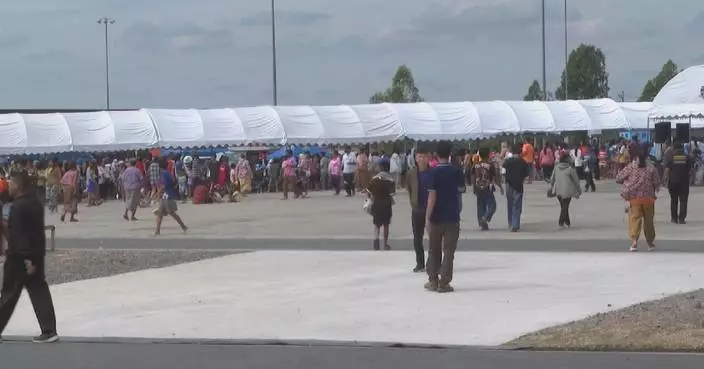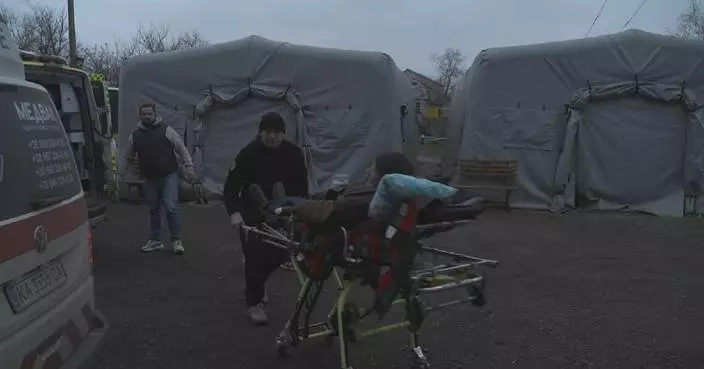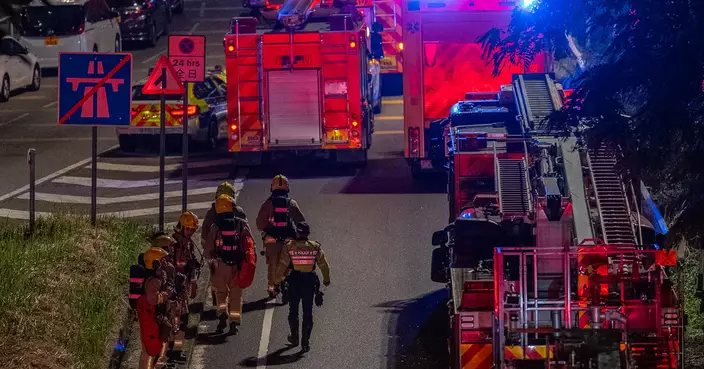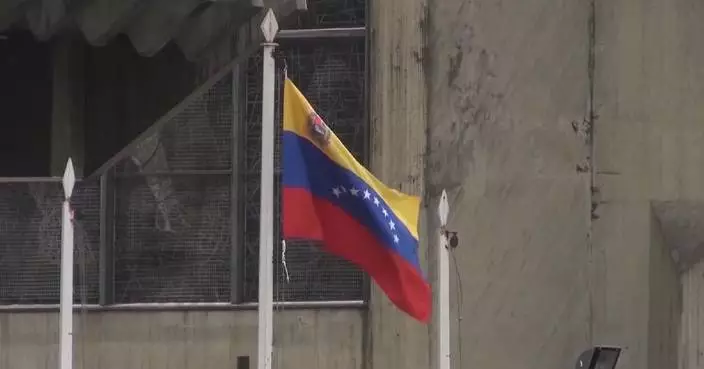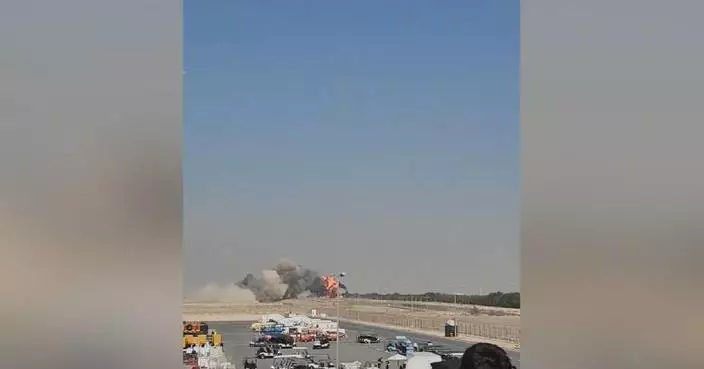Feature · News

Takeaways from AP report on sexual violence in Mali
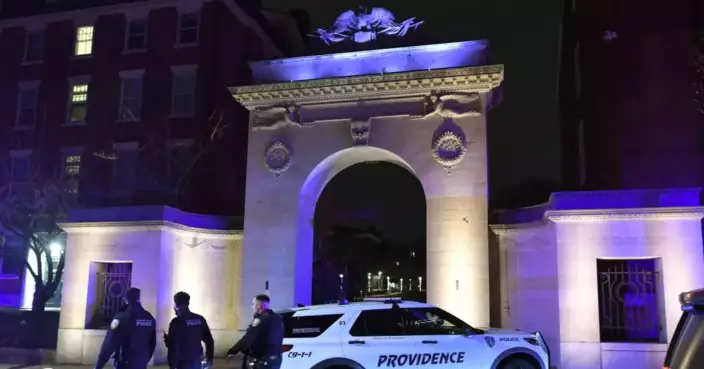
Police search Brown University after shooter kills 2 and wounds 9 on campus

Investigation into Tai Po fire to conclude within nine months: HKSAR chief executive

Global figures hail high-quality development, resilience of Chinese economy

Full-dress rehearsal for National Para Games' closing ceremony held in Shenzhen

China's Five-Year Plans indispensable for long-term high-quality development: former senior diplomat

BP China Insight : NYT : Trump Isn’t Fighting a Cold War with China—He’s Waging a Civil War

BP China Insight : Goldman Sachs: China Effectively Reducing Soybean Import Dependence

Chinese archives' evidence of Unit 731 biological war crimes aligns with Russian Khabarovsk trials records

Int'l guests call for remembering history at China's national event honoring Nanjing Massacre victims

Digging deep to overcome obstacles

Israeli military says senior Hamas militant killed in Gaza
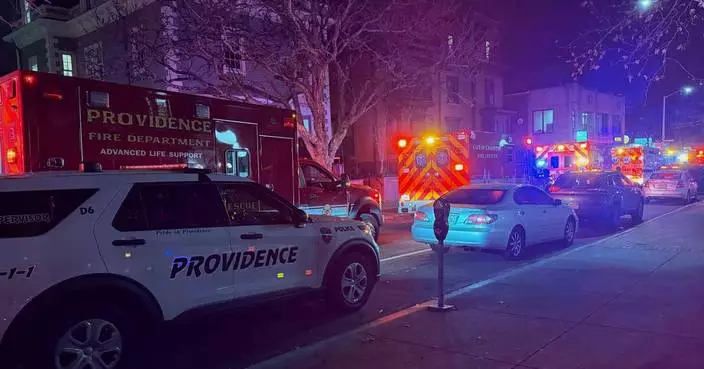
The Latest: Deadly shooting at Brown University in Rhode Island

Canadians honor Nanjing Massacre victims, condemn rising militarism

Russia claims launch of large-scale airstrikes, Ukraine reports nationwide blackouts
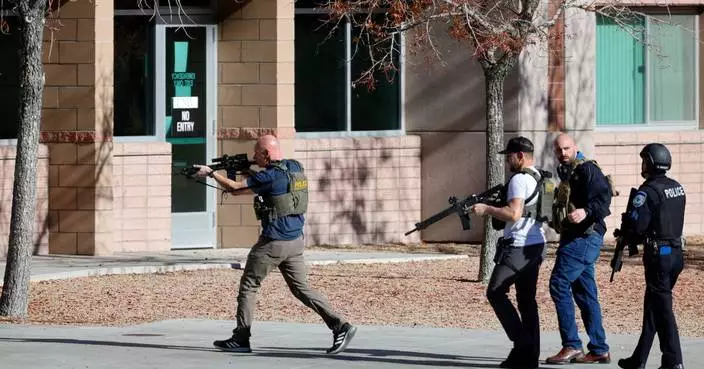
A list of deadly shootings on college campuses in the US

BP China Insight : NYT : Trump Isn’t Fighting a Cold War with China—He’s Waging a Civil War

BP China Insight : Goldman Sachs: China Effectively Reducing Soybean Import Dependence
Chinese archives' evidence of Unit 731 biological war crimes aligns with Russian Khabarovsk trials records
Int'l guests call for remembering history at China's national event honoring Nanjing Massacre victims

Takeaways from AP report on sexual violence in Mali

Police search Brown University after shooter kills 2 and wounds 9 on campus
Investigation into Tai Po fire to conclude within nine months: HKSAR chief executive
Global figures hail high-quality development, resilience of Chinese economy
Full-dress rehearsal for National Para Games' closing ceremony held in Shenzhen
China's Five-Year Plans indispensable for long-term high-quality development: former senior diplomat
Digging deep to overcome obstacles
Israeli military says senior Hamas militant killed in Gaza

The Latest: Deadly shooting at Brown University in Rhode Island
Canadians honor Nanjing Massacre victims, condemn rising militarism
Russia claims launch of large-scale airstrikes, Ukraine reports nationwide blackouts

A list of deadly shootings on college campuses in the US
Feature·Bloggers

【InsightSpeak】From Confrontation to Consensus: A New Bearing for Hong Kong’s Democratic Practice

【InsightSpeak】The executive–legislative relationship under a new electoral culture

【What Say You?】Trump and Starmer Barely Bother with Jimmy Lai – Just Lip Service to Check the Box

【Ariel】9 Arrested for Illegal Drills: Tai Po Fire Lurkers Ready to Strike

【Mark Pinkstone】The return of Roach and his poisoned tongue

【What Say You?】UK Agitators Hijack Grief: The "Triplet" Protest Strategy
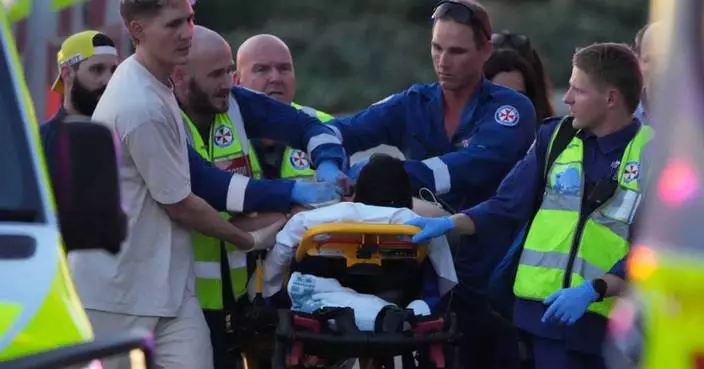
Gunmen kill at least 11 people in attack on Jewish holiday event on Sydney's Bondi Beach
- Police have person of interest in custody over Brown University shooting that killed 2, wounded 9
- Photos show waterlogged Washington state in US
- As gerrymandering battles sweep country, supporters say partisan dominance is 'fair'
- Chile holds an election that could deliver its most right-wing president since dictatorship
- Hallmark holiday movie fans are flocking to Connecticut's quaint filming locations
- Photos show the scene of a deadly attack on Sydney's Bondi Beach
- Zelenskyy and US envoys meet in Berlin to discuss Ukraine peace deal
- Hong Kong's biggest pro-democracy party votes to disband after more than 30 years of activism
- Another blue wave? Meet the Democrat trying to make it happen and the Republican trying to stop her

Spring Festival Gala logo, theme light up on landscape buildings across China
- Chinese mainland's film ticket sales in 2025 exceed 50 billion yuan
- Guangdong promotes bird-friendly netting to protect migratory birds, farm fields
- Education on pause in Cambodia as border fighting continues
- South China's Guangxi sees 10-pct growth in trade with ASEAN in Jan-Nov period
- China to further develop embodied intelligence with focus on robots' learning ability
- Annual grain output of Heilongjiang ranks first in China for 16th consecutive year
- Prehistoric grain storage pits discovered in northwest China
- Xinjiang's desert-edge farmlands become winter paradise for migratory birds
- Annual new energy power generation of China's Gansu exceeds 90 bln kilowatt-hours

Like many holiday traditions, lighting candles and fireplaces is best done in moderation
- Morocco aims to boost legal cannabis farming and tap a global boom
- Jury says Johnson & Johnson owes $40 million to 2 cancer patients who used talcum powders
- Official streaming platform for the Games of the Future Abu Dhabi 2025 powered by ADNOC launches ahead of opening competition
- SmallRig and FamilyLens Launch Global Family Filmmaking Initiative at 3rd FamilyLens International Film Festival
- SEAX Global Acquires Major Stake in Interlink Telecom to Accelerate ASEAN Expansion
- HiTHIUM Launches Three Breakthrough Innovations at Its Third Eco-Day, Unlocking an Intelligent Future with Long-Duration Energy Storage
- M7 World Championship unveils first Opening Ceremony, tournament draw, and M7 Pass—elevates Indonesia on global stage
- Ohio State’s Caleb Downs Named 2025 Paycom Jim Thorpe Award Winner
- AI Infrastructure Company EverMind Released EverMemOS, Responding to Profound Challenges in AI

Humanoid robots take center stage at Silicon Valley summit, but skepticism remains
- Winter virus season so far is not too bad, but doctors worry about suffering to come
- Ford turns to stepped-up tech and cooperation with police to thwart F-150 pickup thieves
- A Chinese whistleblower now living in the US is being hunted by Beijing with help from US tech
- Appeals court backs contempt finding against Apple, but reopens a door for iPhone app fees
- Disney invests $1B in OpenAI in deal to bring characters like Mickey Mouse to Sora AI video tool
- These are the key AI players on the cover of Time's 'Architects of AI' magazine
- Open AI, Microsoft face lawsuit over ChatGPT's alleged role in Connecticut murder-suicide
- NASA loses contact with its Maven spacecraft orbiting Mars for the past decade
- Professor Youmin Xi honoured with University of Liverpool Fellowship

Haruki Murakami honored with awards and a jazzy tribute in New York
- Egypt reveals restored colossal statues of pharaoh in Luxor
- Amy Schumer says she and her husband have decided to end their marriage
- Affable comedy acting legend Dick Van Dyke turns 100 years old
- Hailee Steinfeld and NFL husband Josh Allen are expecting their first child
- Meet the Indigenous women behind Mexican President Claudia Sheinbaum's 'most stylish' looks
- Oscar winner Morricone’s lost opera debuts in Naples after 30 years
- Bestselling British writer Joanna Trollope dies at 82
- It feels good to be Jelly Roll. And now, he's ready to win a Grammy
- Photos show Ennio Morricone's opera 'Partenope' as it premieres in Naples

Teenager Bartesaghi scores twice but Milan held to draw, could be overtaken by Napoli and Inter
- New Zealand skier Alice Robinson wins World Cup super-G; Lindsey Vonn 4th
- Norwegian skier Timon Haugan wins Val d'Isere slalom
- US women's hockey team beats Canada 4-1 in Edmonton to sweep Rivalry Series
- Morgan Frost scores in OT to lift the Flames past the Kings, 2-1
- A rarity: The Thunder lose. OKC falls to 24-2 after loss to San Antonio in NBA Cup semifinals
- Wembanyama makes immediate impact, helps Spurs past Thunder and into NBA Cup final
- Wembanyama's return lifts Spurs to NBA Cup final, handing Thunder just 2nd loss
- Jalen Brunson's 40 points lead Knicks past Orlando Magic in NBA Cup
- The Knicks say Jalen Brunson merits MVP consideration. His play says it as well

Government Task Forces Mobilize Support and Relief Efforts for Wang Fuk Court Fire Victims in Tai Po.
- Hong Kong Police Arrest Woman for Unlawful Drilling Amid Ongoing Subversion Investigation
- No New Chikungunya Cases in Hong Kong; Tsing Yi Trails Closed for Mosquito Control Efforts
- HKU Team Tracks Superbug Genes Across Hong Kong Waters
- Free Chinese Medicine Consultations Available for Residents Affected by Tai Po Fire Starting December 15
- New Vehicle Registration Rules Take Effect December 22: Owners Responsible for Unlicensed Vehicles
- Central Kowloon Bypass Yau Ma Tei Section Opens December 21, Reducing Travel Time to Kowloon Bay to Five Minutes
- Government Task Forces Mobilize $3.7 Billion Fund for Wang Fuk Court Fire Relief Efforts
- Hong Kong Reports No New Chikungunya Cases, Tsing Yi Trails Closed for Mosquito Control Efforts
- Hong Kong Launches GoGlobal Platform to Support Mainland Enterprises in Global Expansion

EU Chamber of Commerce sees renewed potential in Hainan after special customs operation
- China remains largest driver of world economic growth: official
- China makes breakthrough in deep-water reef limestone oil extraction
- Taiwan’s historical epic uncovers Japan’s atrocities during colonial rule
- Int'l experts hail China's economic resilience with high-quality development
- China commits to building full-chain system for ensuring people's livelihood
- China's high-speed trains lead domestic, global rail transport innovation
- Transitional housing projects support Tai Po fire survivors
- China to prioritize high-quality development of marine economy
- Japan's LDP faces fresh scrutiny over misuse of political funds: report
Category · News

Gunmen kill at least 11 people in attack on Jewish holiday event on Sydney's Bondi Beach
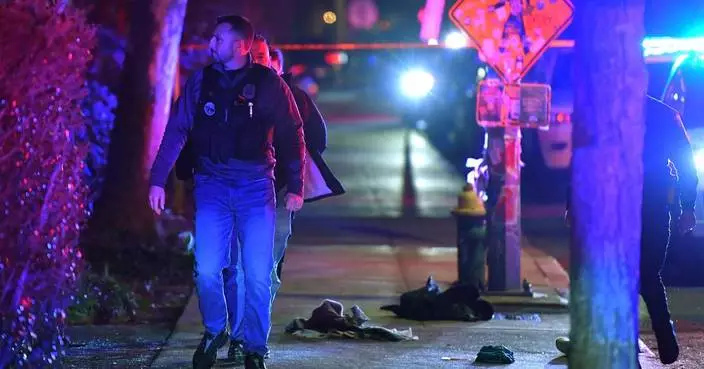
Police have person of interest in custody over Brown University shooting that killed 2, wounded 9
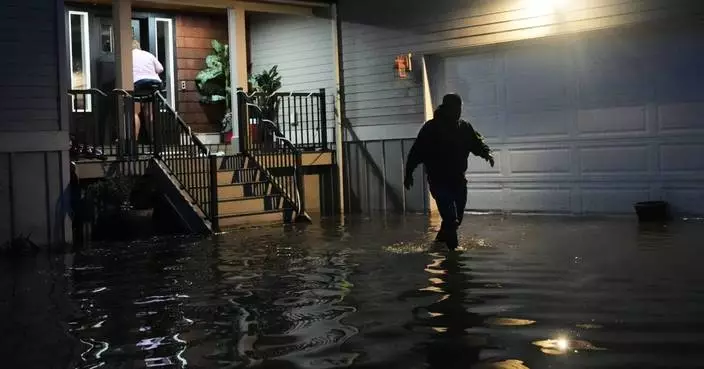
Photos show waterlogged Washington state in US

Spring Festival Gala logo, theme light up on landscape buildings across China

Teenager Bartesaghi scores twice but Milan held to draw, could be overtaken by Napoli and Inter

As gerrymandering battles sweep country, supporters say partisan dominance is 'fair'

Government Task Forces Mobilize Support and Relief Efforts for Wang Fuk Court Fire Victims in Tai Po.

Chile holds an election that could deliver its most right-wing president since dictatorship

Chinese mainland's film ticket sales in 2025 exceed 50 billion yuan

New Zealand skier Alice Robinson wins World Cup super-G; Lindsey Vonn 4th

Hallmark holiday movie fans are flocking to Connecticut's quaint filming locations

Haruki Murakami honored with awards and a jazzy tribute in New York
Guangdong promotes bird-friendly netting to protect migratory birds, farm fields
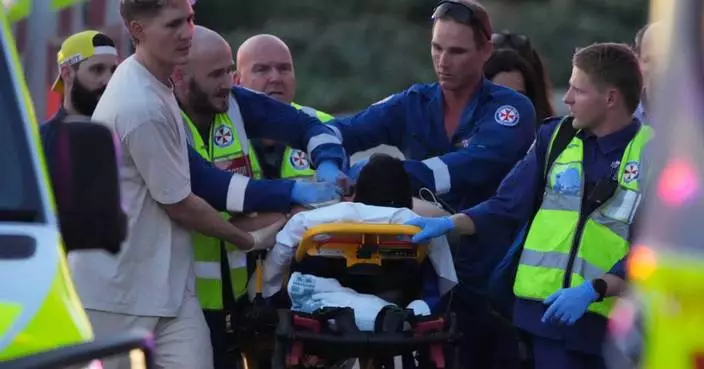
Photos show the scene of a deadly attack on Sydney's Bondi Beach

Norwegian skier Timon Haugan wins Val d'Isere slalom
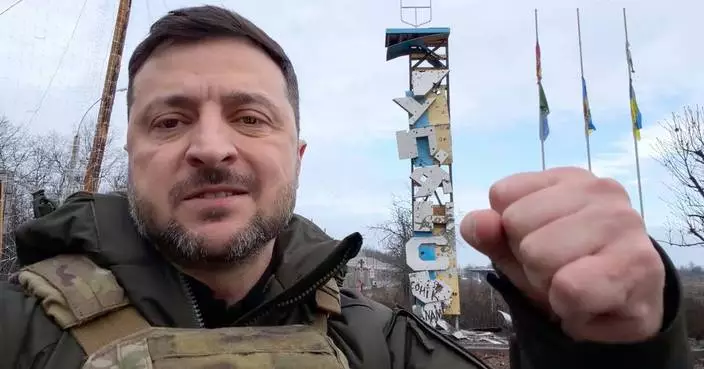
Zelenskyy and US envoys meet in Berlin to discuss Ukraine peace deal

Hong Kong's biggest pro-democracy party votes to disband after more than 30 years of activism

Another blue wave? Meet the Democrat trying to make it happen and the Republican trying to stop her
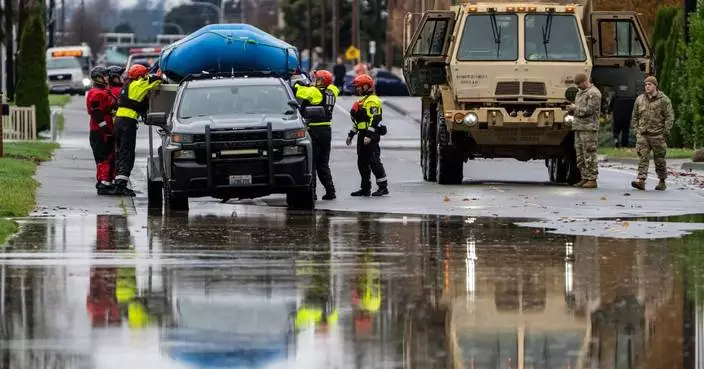
Arctic air mass pushes to the U.S. South; Midwest also bracing for dangerous wind chills

Myanmar calls on countries to take back citizens held in crackdown on scam centers

Egypt reveals restored colossal statues of pharaoh in Luxor
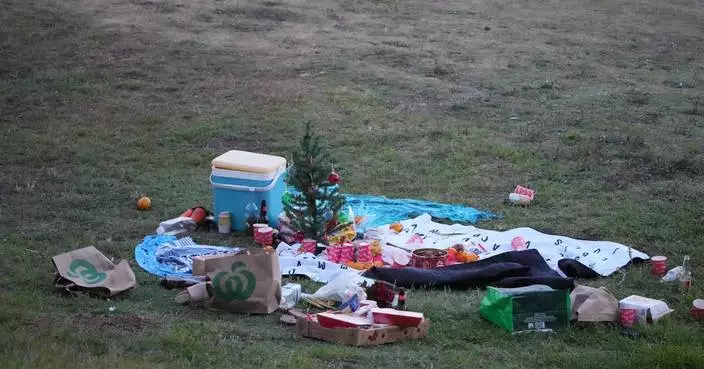
Mass shootings are rare in Australia. Here is a look at some previous attacks

Pope criticizes prison overcrowding during special Mass for inmates, guards and families
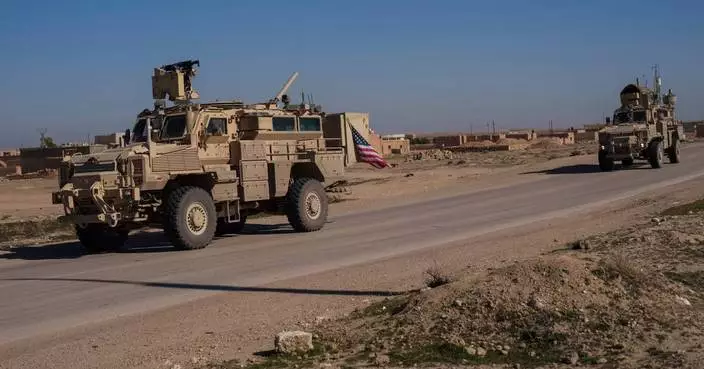
What to know about the US military's role in Syria after deadly IS attack

Like many holiday traditions, lighting candles and fireplaces is best done in moderation

Hong Kong Police Arrest Woman for Unlawful Drilling Amid Ongoing Subversion Investigation

Thailand says Cambodian rocket fire has caused its first civilian death in new border fighting
Education on pause in Cambodia as border fighting continues
China to further develop embodied intelligence with focus on robots' learning ability
South China's Guangxi sees 10-pct growth in trade with ASEAN in Jan-Nov period

Annual grain output of Heilongjiang ranks first in China for 16th consecutive year
Prehistoric grain storage pits discovered in northwest China

No New Chikungunya Cases in Hong Kong; Tsing Yi Trails Closed for Mosquito Control Efforts
Xinjiang's desert-edge farmlands become winter paradise for migratory birds
EU Chamber of Commerce sees renewed potential in Hainan after special customs operation
Annual new energy power generation of China's Gansu exceeds 90 bln kilowatt-hours

Anti-immigrant rhetoric and policies intensify across Europe

China's Haiji-2 deepwater jacket platform boasts multiple world-leading technologies
China remains largest driver of world economic growth: official

Taiwan compatriot shares ancestors' stories on Nanjing Massacre Memorial Day
China makes breakthrough in deep-water reef limestone oil extraction
China commits to building full-chain system for ensuring people's livelihood
Taiwan’s historical epic uncovers Japan’s atrocities during colonial rule
Int'l experts hail China's economic resilience with high-quality development
China's high-speed trains lead domestic, global rail transport innovation
IMF chief highlights "better than expected" 3.2 pct global growth forecast, urges reforms
China's first deepwater oilfield sees full operation in expanded sections
China to prioritize high-quality development of marine economy
Transitional housing projects support Tai Po fire survivors
Japan's LDP faces fresh scrutiny over misuse of political funds: report
China's vision for a multipolar, inclusive world draws praise from global scholars
Embodied AI robots showcase skills in eight scenarios
Global companies see signals for continued investment in China
China's 42nd Antarctic Expedition team nears completing supply unloading surrounding Zhongshan Station

HKU Team Tracks Superbug Genes Across Hong Kong Waters
Candidates from opposite sides of political spectrum vie for Chilean presidency

Girls and women fleeing Mali describe sexual violence by Russian forces
Unit 731 archives reminds horrors of Japanese militarism, calls to cherish peace: official
Indonesia flood death toll exceeds 1,000

US women's hockey team beats Canada 4-1 in Edmonton to sweep Rivalry Series

Morocco aims to boost legal cannabis farming and tap a global boom
China to further stabilize employment, improve social security

Morgan Frost scores in OT to lift the Flames past the Kings, 2-1
Chinese FM calls for pushing China-UAE comprehensive strategic partnership to higher level

A rarity: The Thunder lose. OKC falls to 24-2 after loss to San Antonio in NBA Cup semifinals
Testimony reveals Japan's germ warfare crimes in China

Wembanyama makes immediate impact, helps Spurs past Thunder and into NBA Cup final
Int'l experts express concern over Takaichi's erroneous remarks

Wembanyama's return lifts Spurs to NBA Cup final, handing Thunder just 2nd loss

Jalen Brunson's 40 points lead Knicks past Orlando Magic in NBA Cup

The Knicks say Jalen Brunson merits MVP consideration. His play says it as well

PHOTO ESSAY: Refugees flee Mali as region is the world's deadliest for extremism

Jalen Brunson's season-high 40 points lead Knicks past Magic to NBA Cup final

Patriots and Broncos are both home underdogs despite 10-game winning streaks

MacKinnon has goal and assist as Avalanche beat Predators 4-2 for 11th straight home win

Stoddard and Santos-Griswold head to their second Olympics for the US in short track speedskating

Magic guard Jalen Suggs leaves NBA Cup semifinal with hip injury, tests await in Orlando
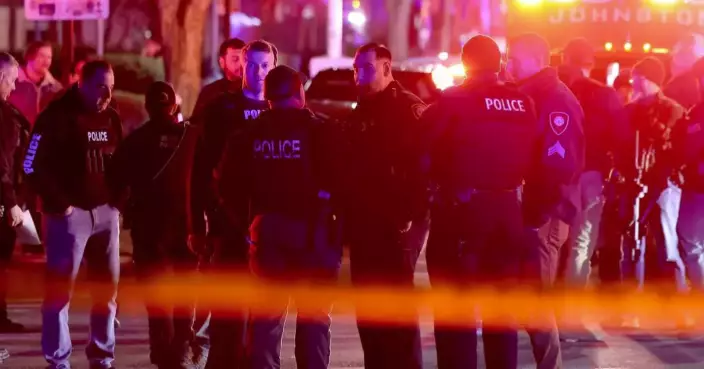
Photos show police investigation of a shooting at Brown University

Sergei Bobrovsky and Brad Marchand lead Panthers to 4-0 win over Stars

Summer Britcher wins gold in Park City, USA Luge's 50th World Cup victory

Alex DeBrincat scores twice as Red Wings shut out Blackhawks 4-0

After centuries of conflict, Chile's Indigenous Mapuches fear a far-right political turn

Miller scores 2, including OT winner, as Rangers beat Canadiens 5-4

Hellebuyck makes 24 saves in return from knee injury, Jets beat Capitals 5-1










